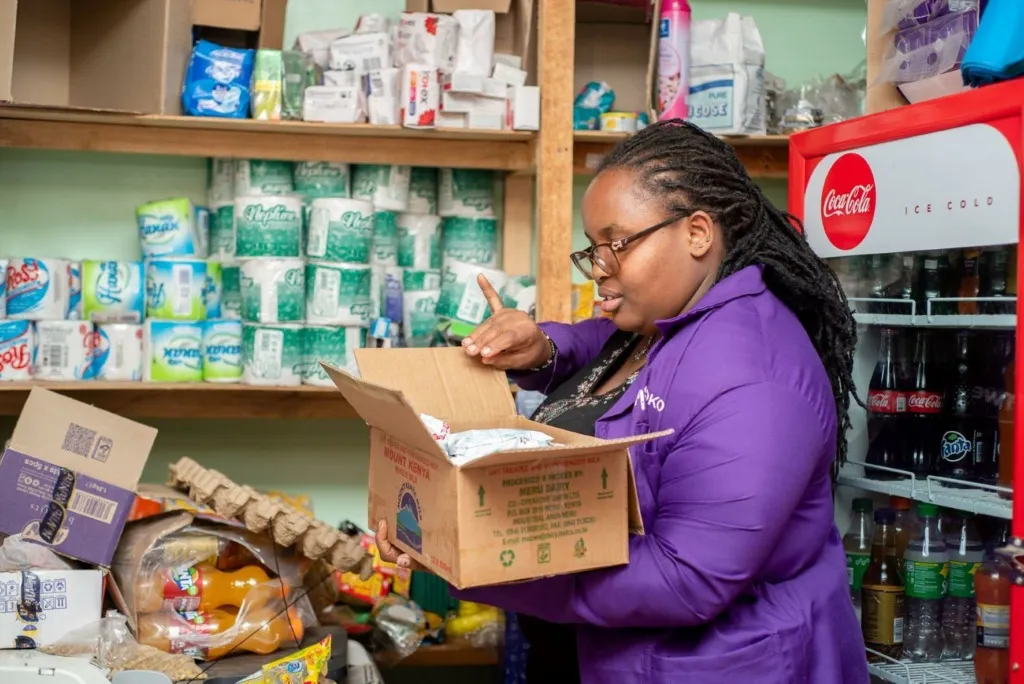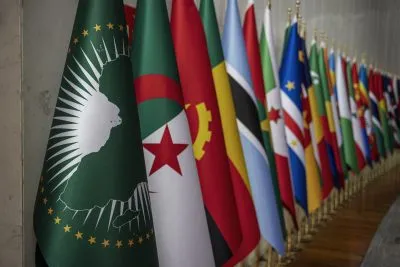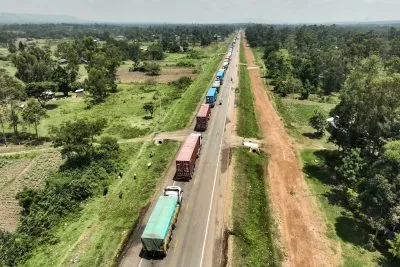In March, e-commerce firm Wasoko, which delivers goods and provides financing to informal retailers, announced the close of a $125m Series B equity round, and officially expanded to West Africa with launches in Abidjan, Côte d’Ivoire and Dakar, Senegal. Initially focused on East Africa, the company has rebranded from Sokowatch to Wasoko, which means “People of the market” in Swahili. The company’s CEO and founder, Daniel Yu, recently spoke to African Business about its growth plans.
African Business: What role does Wasoko play in the African e-commerce space?
Daniel Yu: Wasoko fundamentally exists to increase the purchasing power of African communities and reduce the costs of essential goods – the everyday products like rice, soap, and cooking oil that people depend on. The way we’re doing that is by streamlining the supply chain to direct goods as directly to communities as possible through “mom and pop” stores that are a ubiquitous presence on every African street and corner.
The challenge that these shops face is that they have to go to wholesalers, leave their store once or twice a week, shut down for half a day, buy goods and transfer those goods by themselves. Obviously this adds costs and a lot of friction to the process.
So what we’re doing is supporting shops by allowing them to order from us at any time for free same-day delivery. We’ll deliver on average in less than three hours and the idea is to help them restock and get what they need without leaving the store. We also give them “buy now pay later” financing, which is quite critical to unlocking the actual working capital that often constrains these informal businesses. We’re talking about over 8m of these “mom and pop” stores selling half a trillion dollars a year of consumer goods to the vast majority of citizens across continent.

It’s difficult and fragmented to supply the market, and that places a burden on the last mile component. We believe we have a huge opportunity through tech and economic scale to reduce the cost of goods and build a platform for other value-added services like financing.
We stock our own goods which we procure from brands and manufacturers, which is key to cutting out layers of middlemen which exist right now – the wholesalers, distributors, sub-distributors – which hike up the cost. We try to go as upstream as possible for sourcing and and get it directly to the point of sale.
What is the role of technology in the business?
Technology is critical for the ordering component. We have an app but also SMS/Whatsapp ordering channels for the shopkeepers to use. Fundamentally it would be physically impossible to manually run an on-demand delivery operation to 50,000 merchants across six countries if there were not a very tight full-tech backend managing inventory, delivery routing, demand planning, and all of that.
There’s a lot happening behind the scenes to facilitate this level of service to this widely fragmented market segment. To date we’ve built out all of our backend technology ourselves.
Wasoko recently completed a $125m fundraising, what will that allow you to do?
We were very fortunate to close our $125m Series B equity round led by Tiger Global and Avenir Growth Capital.
On a going forward growth basis this will be focused around two primary verticals. The first will be geographic expansion, looking at additional cities within current markets, of which we’ve already expanded to several since the close of round, but then also expanding to new countries as well.
We’ve already done that with the launch of new operations in Côte d’Ivoire and Senegal, which marks our first expansion to West Africa. So we’ll continue expanding into new countries over the coming period and that reflects the first vertical and our plans to become active and present in every corner of continent.
The next vertical we’re focused on is a product offering expansion. With our core foundation of B2B e-commerce and our “buy now pay later service”, what are the offerings we can layer in to leverage the network and data we have about this hard to reach segment? A channel that ultimately serves the mass market and your average African consumer – that’s what we’re exploring as well.
What’s interesting is we’re looking to build both verticals along two dimensions, so not just in-house organic growth – our own teams launching in new countries or developing R&D services – but also looking at it from an M&A perspective as well, acquiring as well as taking minority stakes in related ventures that could be aligned with those growth plans.
We’ve just announced our first minority investment into TuShop, a Kenyan e-commerce company focused on B2B2C social commerce. That’s a space we find interesting and we’re excited to be part of their growth journey.
How have you found the transition to Francophone markets?
I think we’ve been very well suited to take on the challenge of expanding to what is fundamentally a very different cultural region and zone than the East African region where we’ve been present for some time. We’re fortunate to have almost 40% of our senior leadership as French speaking, including myself, and the fact we’ve had extensive experience with multi-country operations already sets us up well to execute on this expansion.
And indeed we’ve seen very strong results so far. These markets are in fact ahead of performance plans and we’re very excited for what being active in the Francophone West African region means for company growth moving forward.
You’ve considered expansion to South Africa and Nigeria. What is your current thinking on these markets?
We’re looking at geographical expansion in terms of size and opportunity, but we also spend a lot of time looking at value chains. Starting at the top, how are manufacturers feeling about their distribution capability, do they feel like there are gaps in their downstream product distribution? At the distributor level, how large and well organised are those players, how long have they been in the market? And at the wholesale and retail level, what’s their experience and level of organisation in terms of being able to reliably access products?
What we find in different markets are different levels and that affects the opportunities. When it comes to markets like South Africa, which is quite different structurally from other sub-Saharan African countries, that will require a fundamentally different approach and even a significantly different model than what we have in Kenya, for example. However I think there are significant opportunities in the downstream chains of the economy, I think it will just take more time for us to explore and figure out.
Nigeria has a lot of the same inefficiencies we see in value chains elsewhere. However, there is a difficult business environment, the macro situation is quite volatile and there are already a number of comparable companies active in the market, so I think that presents an interesting opportunity to look at potentially making an M&A play with one of the existing companies in our space and leveraging their expertise and experience to scale up the model with our backing and experience.
There’s also still a huge growth ceiling for our operations in literally every single one of our markets – we’re still single digit penetration in all of our countries and the space is enormous. It’s going to be a long time before all of our shops and customers are fully served and as a result it’s a very exciting space to be in and building for the long term.
Want to continue reading? Subscribe today.
You've read all your free articles for this month! Subscribe now to enjoy full access to our content.
Digital Monthly
£8.00 / month
Receive full unlimited access to our articles, opinions, podcasts and more.
Digital Yearly
£70.00 / year
Our best value offer - save £26 and gain access to all of our digital content for an entire year!
 Sign in with Google
Sign in with Google 



